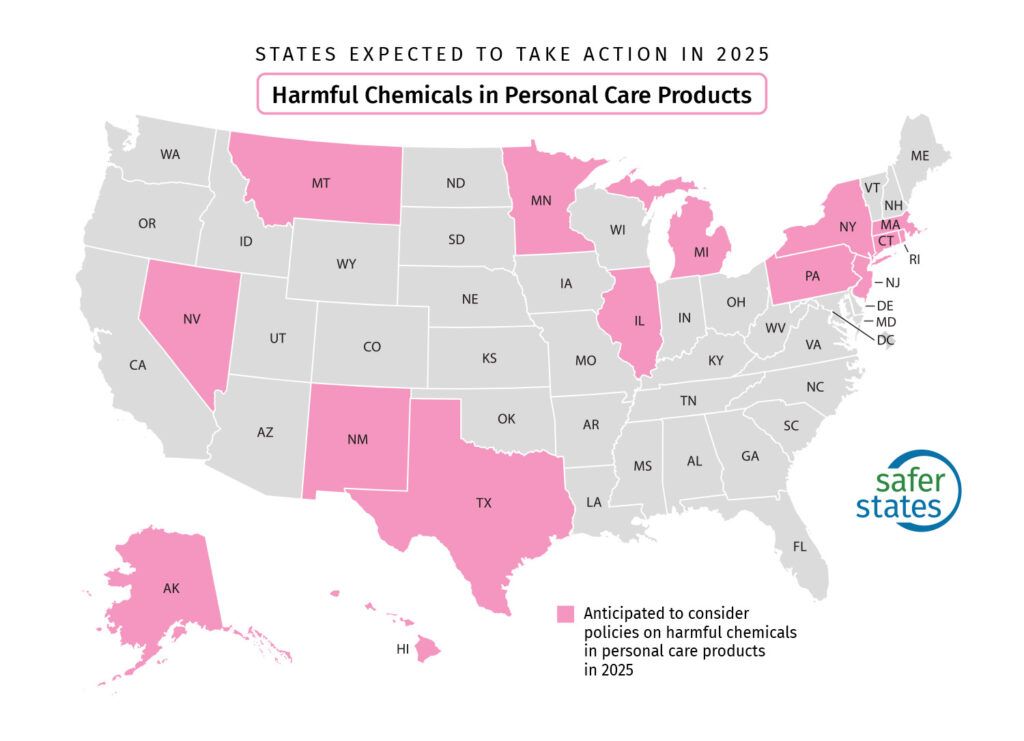Moving toward safer cosmetics and personal care products
Restricting harmful chemicals in personal care products and cosmetics is another emerging priority this year. Although Congress modestly updated the federal law regulating cosmetics in 2023, it left the authority to the states to ban toxic ingredients like PFAS, phthalates, and other chemicals.
Personal Care Product Health Concerns
Many everyday cosmetics and personal care products can contain harmful chemicals linked to serious health concerns such as cancer and reproductive harm. In addition to health concerns, these toxic chemicals can contribute to broader pollution problems during manufacturing and disposal. Hazardous chemicals commonly found in these products include PFAS, phthalates, formaldehyde, and formaldehyde-releasing agents.
Certain products with toxic ingredients are used in greater quantities by people of color, resulting in a disproportionate impact. Products like skin lighteners, hair relaxers, and acrylic nails are often marketed to people of color or applied to customers by people of color and contain some of the most worrisome ingredients in cosmetics.
Expected Personal Care Product Policy and Regulations
This year, at least 15 states will consider policies that move toward safer cosmetics and personal care products. These states include Alaska, Connecticut, Hawaii, Illinois, Maine, Massachusetts, Michigan, Montana, New Mexico, Nevada, New Jersey, New York, Pennsylvania, Rhode Island, and Texas.
